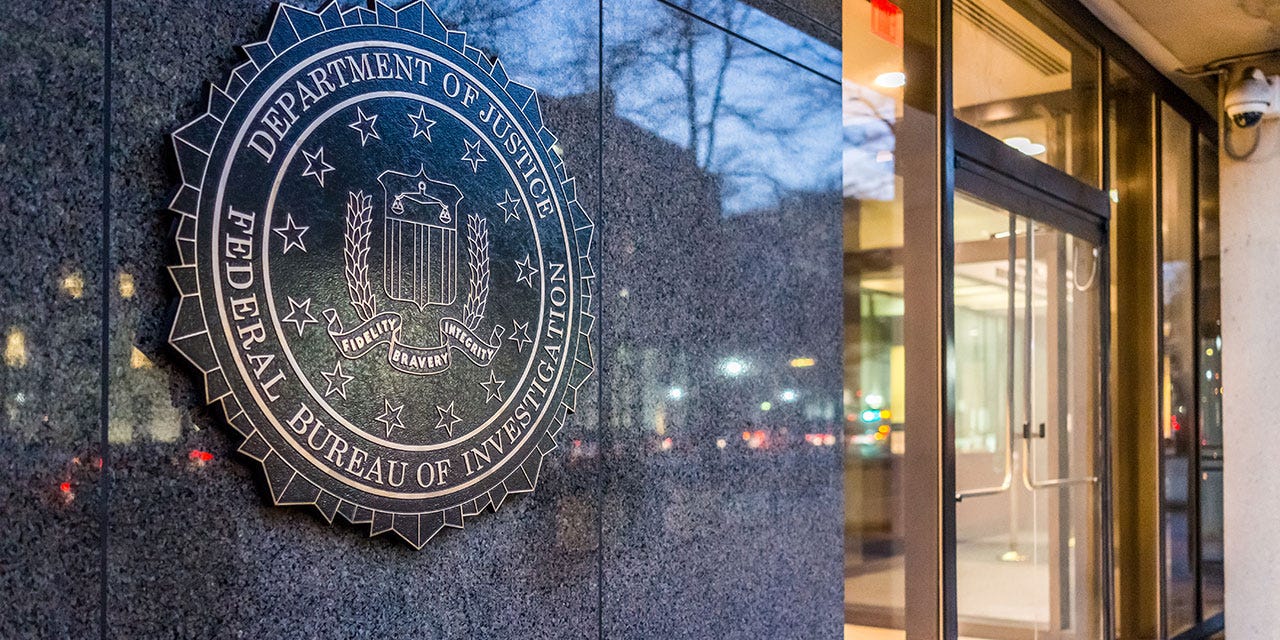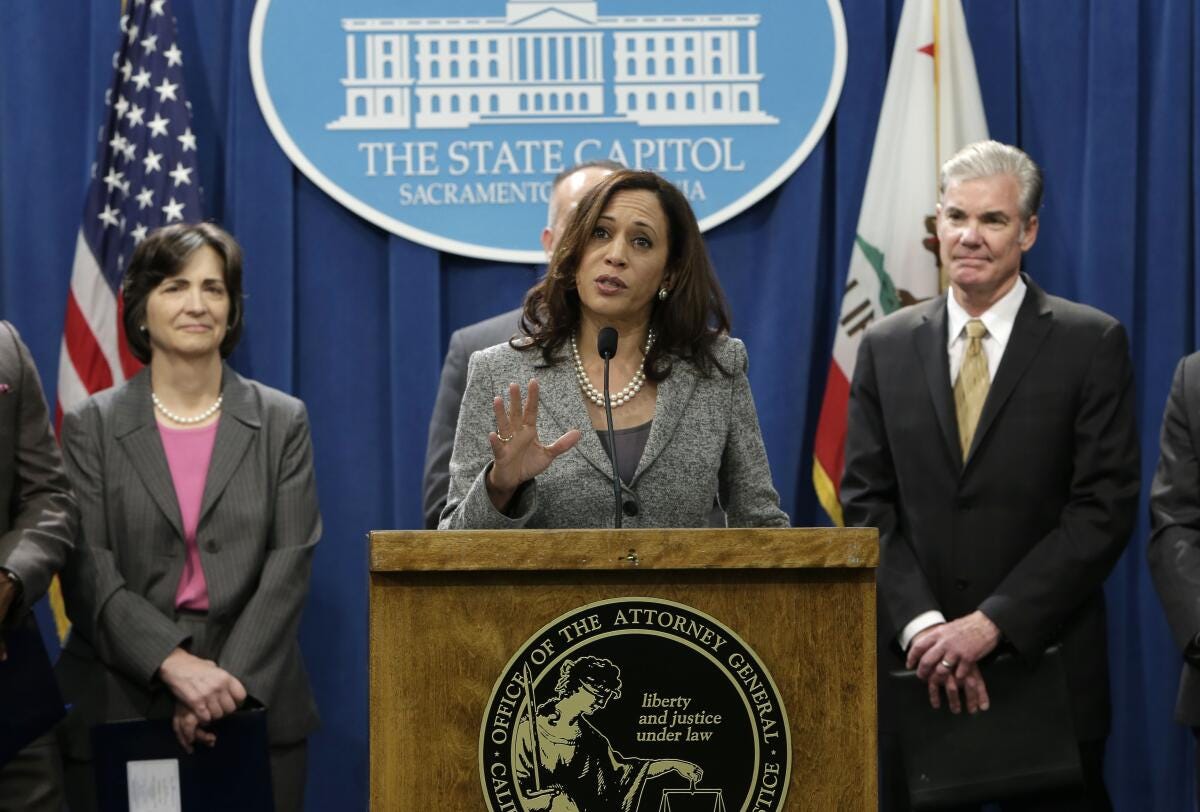Trump says crime is up, Harris says it is down
Who is right?
Crime is one of this year’s hottest issues, and both presidential candidates say they can handle crime better than the other. On the campaign trail, Donald Trump has repeatedly said that violent crime is “through the roof,” while Kamala Harris’s campaign has been adamant that crime rates are down.
So who is right?
First, a note about how crime data is collected. Multiple agencies report crime statistics, which makes this more complicated.
When Trump says crime has gone up nearly 40% since 2020, he is citing the National Crime Victimization Survey (NCVS). The survey is conducted by the Bureau of Justice Statistics (BJS) which is part of the DOJ, and it asks a sample of people whether or not they have been the victim of crime in the last six months, even if the crime was not reported to the police.
FBI statistics, on the other hand, rely on data collected by law enforcement. This is the information Harris is citing. The FBI data will differ because it means that the crime has been reported to the police, and that the law enforcement agency participates in turning over their data to the FBI, which not all police forces do.
Because they are using different numbers, technically both can be considered correct. Violent crime reported in the NCVS in 2023 is up 37% since 2020, but the survey numbers cited by Trump don’t include murder (the questioners obviously can’t ask dead victims if they have been the victim of a crime).
In the FBI data cited by Harris, violent crimes reported to police (including homicide) were down 6% in 2023 from 2020.
And to make things *more* confusing, in recent weeks the FBI updated data for the years 2021 and 2022. Previously, numbers had shown a 2.1% drop in crime over this period, but the new numbers show a 4.5% increase in violent crime during that year. Why is that?
Part of it was law enforcement participation. In 2021, the FBI changed how it gathered information. They had previously collected the data through two methods, a Summary Reporting System (an older method that counted only the most serious offense even if several offenses took place during the commission of a crime.)
For example: someone breaks into a home with a firearm, robs them, and then assaults a person in the house. There are potentially several crimes someone could be charged with from this single event, like assault, armed robbery, and breaking and entering. Under the Summary Reporting System, only the most serious crime from that event would be tracked.
In 2021, the FBI stopped accepting data from the Summary Reporting System, and began only using the National Incident Based Reporting System, which tracks crimes in greater detail and includes more types of crimes. Because of this change, there was a sharp drop in police forces submitting data. That year, only about ⅔ of police forces across the US participated, and the ones that didn’t included some major cities like New York and Los Angeles.
Donald Trump on crime
FBI data shows violent crime rates went down under the first three years of Trump’s presidency, but spiked in 2020. Researchers are still looking at why that increase happened, but point to three potential factors: the economic and mental stress of covid, a spike in gun sales, and the protests after George Floyd’s murder by police.
Trump has vowed to fight crime if he’s elected, saying he would have law enforcement engage in “one really violent day… One rough hour — and I mean real rough — the word will get out and it will end immediately.” He has not specifically said how this plan would work or how it reduces crime.
He also blames illegal immigrants for crime, saying he will “put these vicious and bloodthirsty criminals in jail or kick them out of our country.” He has promised to deport at least 11 million people if elected as president (that’s how many people were in the country illegally as of 2022, according to the Department of Homeland Security, the last year they have data for).
In order to do this, he plans to use emergency and executive orders to bypass existing laws, and use local and state police to identify and arrest illegal immigrants.
According to USA Today, who reviewed interviews and speeches by Trump and his former advisers and administrators, Trump also plans to “activate provisions under a law from the 1700s called the Alien Enemies Act, which was used to detain people of Japanese, German and Italian descent in World War II.”
Trump has talked about the “enemy within,” specifically in cities that have Democratic leaders. He has said, “We have some very bad people. We have some sick people, radical left lunatics. And I think they’re the big — and it should be very easily handled by, if necessary, by National Guard, or if really necessary, by the military, because they can’t let that happen.” He seems to be suggesting that he would use the military against anyone he deems as his enemy.
On guns, Trump has promised to undo all gun control restrictions enacted under President Biden, including a “Zero-Tolerance” policy that revokes federal licenses from any firearm dealer that violates gun laws and regulations on stabilization devices that have been used in mass shootings. He has said the Second Amendment is under siege and says he’s the “best friend gun owners have ever had in the White House.”
Trump says he will increase funding for hiring and training police officers, and will strengthen immunity and other protections for officers.
Trump has called for expanding the death penalty, including for drugs, saying “We’ve never had massive amounts of drugs pouring into our country. We fought it like hell. We were fighting. And by the way, you’ll never solve the problem without the death penalty.”
He has also called for the death penalty for illegal immigrants who kill US citizens.
Kamala Harris on crime
Violent crime rates are comparable in 2023 and 2019, but here’s what you might not be seeing on the news: violent crime in both years is near a 50 year low.
Harris has a much longer record on crime than Trump, because she was a prosecutor and California attorney general before becoming a senator and vice president.
The New York Times looked into her experience as an elected prosecutor, speaking to more than 30 people who worked with her, and described Harris as being “particularly focused on protecting the most vulnerable victims by cracking down on violent offenders while seeking alternatives to incarceration for less serious criminals.”
In 2005, Harris began a pilot program to help nonviolent drug offenders between the ages of 18 and 30. To qualify, an offender had to plead guilty and get a job within 60 days. After a year of working, along with doing community service and attending meetings, the charges would be expunged from their record.
After two years, fewer than 10% of the program’s participants reoffended. But the program also allowed seven undocumented immigrants into it because of an issue with how they were screened, and that has been pointed out as a concern for some.
Separately, there were also a few scandals during her tenure, including the delay in telling defense attorneys about a crime lab technician who was found to be acting erratically and stealing drug samples. Because of that, hundreds of drug-related cases (not part of the pilot program mentioned above) that relied on the technician’s testimony were thrown out.
As California attorney general, Harris expanded a program that had started in San Francisco to crack down on the parents of kids who were skipping school. Police ended up arresting several parents, including the mother of a girl with sickle-cell anemia who had missed school because of it.
Harris once referred to herself as a “progressive prosecutor” who was there for both the victims of crimes and the “victims of a broken criminal justice system.” Her campaign now calls her a “pragmatic prosecutor” who “successfully took on predators, fraudsters, and cheaters like Donald Trump.”
As president, Harris has promised to tackle gun violence, and “ban assault weapons and high-capacity magazines, require universal background checks, and support red flag laws that keep guns out of the hands of dangerous people.”
She says she is committed to supporting law enforcement, and investing in “proven crime prevention and community violence intervention.”
Harris has said she is personally opposed to the death penalty but as a prosecutor she tried death penalty cases, and I can’t find a record of her saying she will oppose the death penalty as president.
Harris has also previously supported legalizing marijuana, ending solitary confinement in prisons, and ending a federal mandatory minimum sentence for drug offenders. As president, Harris said she will work to reclassify marijuana as a less dangerous substance (Trump supports this as well).
Regardless of which crime statistics are cited, it’s a major issue for voters this election, and there’s a clear distinction between how each candidate sees the path forward to lowering crime. I would love to hear in the comments which approach resonates with you more.









I find Trump's "plan" to deal with crime to be equal parts terrifying and nonsense. National guard, death penalty for drug offenders, one rough day for police to do what exactly??? I can understand not agreeing with one side's policy, but when the other side is spewing just blatant nonsense and people consider it to be coherent policy...I have no words.
And then I think...how much does a President actually do to tackle local crime really? To me it seems like a lower on the totem pole federal issue.
There is so much wrong with Trump's approach to lowering crime rates. He blames immigrants for everything and this is not accurate. We do need to deal with the border which the Biden administration worked hard to do. To kill a bill that would address this means you don't really care about drugs and crime coming across the border. It means you want to use that as a talking point to get elected. "A day of violence" is not a solution to crime. It just encourages violence as a solution to things. Removing restrictions on guns is a terrible idea. It has been proven that countries with stricter gun laws have fewer mass shootings. Harris is talking about smart gun laws that I feel most of Americans want. I really just don't want to keep hearing how terrible our country is. I love America and I am ready to move forward with a more hopeful view of this country. With all its faults, is an amazing place to live.